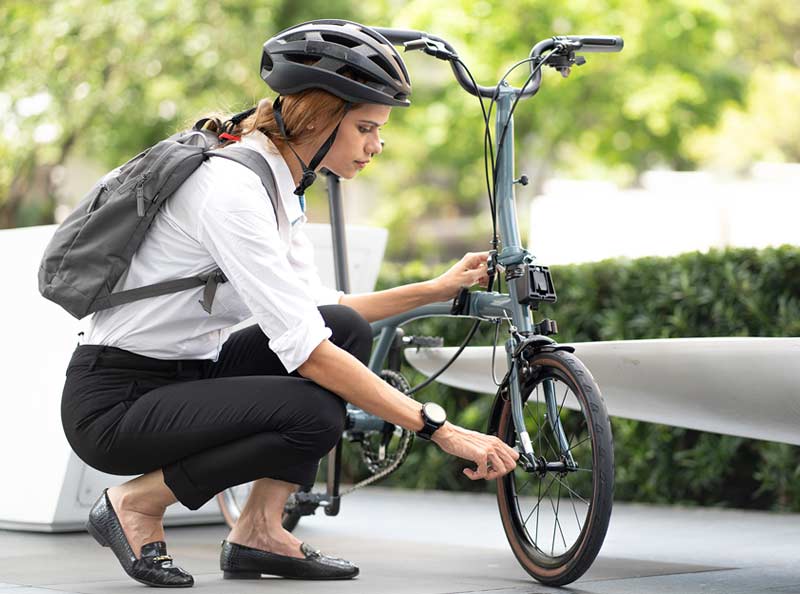
August 2025
On July 4, 2025, President Trump signed into law the One Big Beautiful Bill Act (“OBBBA”), a sweeping piece of legislation nearly 1,000 pages long. This advisory covers the OBBBA’s provisions that affect benefits that may be of interest to employers sponsoring health and other benefit plans.
Most of the OBBBA changes will be effective next year, but the telehealth/remote care HSA compatibility provision (addressed below) is effective back to January 1, 2025, of this year. The increase in dependent childcare (although not indexed for future changes) will be in effect in 2026 and should be considered during the next open enrollment, and the Direct Primary Care provision may be of interest to those with HSAs. Eligibility for Medicaid will be scaled back for certain individuals including some categories of immigrants, and new community engagement requirements will apply for able-bodied adults under age 65.
Changes for Health Savings Accounts (“HSAs”)
Perhaps the most significant provision for employers sponsoring high-deductible health plans (“HDHPs”) is the OBBBA’s permanent extension of the safe harbor for pre-deducible coverage for telehealth (and other remote care) services. This safe harbor first went into effect during COVID, when temporary emergency relief allowed HDHPs to cover telehealth services before individuals met their deductible, without jeopardizing the plan’s HDHP status. The temporary relief was extended twice before expiring at the end of 2024.
The OBBBA retroactively extends the safe harbor beginning after December 31, 2024 (prior relief applied before then) and makes the safe harbor permanent going forward. This means telehealth coverage before the HDHP deductible is now considered “permitted coverage” for HDHP purposes, with no sunset or expiration date. This is good news for many employers who want to offer telehealth (and other remote care services) before the HDHP deductible is met. Employers that discontinued pre-deductible telehealth coverage due to the expiration of the extension, or never offered it because of the temporary nature of the safe harbor, may now want to add telehealth to their HDHP benefits.
The OBBBA did not include a provision directing the agencies to issue any regulations or guidance on the scope of “telehealth” or “other remote care services”, but formal guidance on which services qualify would be helpful. For example, if an HDHP offers “remote care services” that include prescription drugs and durable medical equipment, can the HDHP cover these costs before the deductible is met? A conservative approach would be to allow the cost of the remote care visit but apply the deductible to any devices or prescriptions. Further agency guidance would be welcomed.
HSA-Compatible Direct Primary Care Service Arrangements
Another big change for HSAs is the compatibility of coverage under direct primary care service arrangements (DPCs) with HSAs. DPCs provide certain primary care health services for a fixed fee. Currently, coverage under these arrangements disqualifies a person from contributing to an HSA. The OBBBA changes that. As of January 1, 2026, an individual can be covered under a DPC arrangement without being disqualified from contributing to an HSA and can also use their HSA dollars to pay for the arrangement’s subscription cost.
The OBBBA directs the Department for Health and Human Services (“HHS”) to issue regulations and other guidance on how to apply these provisions. For now, individuals should be cautious of any DPC arrangements that include benefits beyond primary care services. For example, some arrangements include concierge perks such as priority when scheduling appointments, 24-hour telephone access to the doctor, and shorter wait times upon arrival. Guidance on whether such add-ons would be considered de minimis, could be paid for “à la carte,” and/or whether they would be disqualifying would be helpful.

HDHP Treatment for Bronze or Catastrophic Exchange Individual Coverage
Beginning January 1, 2026, Bronze or Catastrophic level individual coverage under an Exchange will be treated as a type of HSA-compatible HDHP.
Dependent Care Assistance Program Limits Raised to $7,500 Starting in 2026
For the first time since dependent care assistance programs (“DCAPs”) were created in 1988, Congress has increased the cap. For over 35 years, the maximum annual exclusion allowed for DCAPs was fixed at $5,000 (or $2,500 for separate returns filed by married individuals), with no adjustment for inflation. Beginning January 1, 2026, the maximum annual exclusion is raised (again without future indexing) to $7,500 (or $3,750 for separate returns filed by a married individual).
Employers with DCAPs on calendar year plans gearing up for 2026 annual enrollment will want to update their materials to reflect these changes. Employers renewing prior to 2026 (e.g., non-calendar year plans) will need to consider whether (and how) to pro-rate and accommodate the increase, which will not start until January 2026.
Also, although the OBBBA did not change the qualifying dependent care expense cap for purposes of the dependent care tax credit (which remains at $3,000 for one child and $6,000 for two or more dependents), the OBBBA does increase the tax credit calculation from 35% to 50% of qualifying dependent care expenses. It also introduces a two-tier phase-out structure based on adjusted gross income. These changes may affect the appeal of the DCAP benefits for employees based on their income if the dependent care tax credit is more beneficial than participation in the DCAP.
Now would also be a good time to conduct midyear nondiscrimination testing to see if the DCAP is on track to pass. If not, making adjustments and corrections before year-end is much more manageable than after the close of the year. Due to other factors such as the dependent care tax credit, participation rates in DCAPs tend to be lower among employees at the lower end of the salary spectrum, and higher among employees at the higher end of the salary spectrum. DCAPs that allow highly compensated employees to participate sometimes struggle to pass nondiscrimination testing. Raising the cap to $7,500 is not likely to improve this trend and may even increase utilization of the benefit among highly compensated employees.
Plan sponsors will want to ensure that their plan documents allow for adjustments to the elections of highly compensated employees as may be necessary to assure compliance with any nondiscrimination provision of the Code, and that the plan sponsor can make these election changes without the consent of the highly compensated employees. Some plan sponsors may even want to consider whether to allow highly compensated employees to participate in the DCAP at all.
Tax-Free Employer Contributions to Trump Accounts
The OBBBA establishes “Trump Accounts”, a new investment vehicle similar to an Individual Retirement Account that parents can set up for their minor children. Beginning in 2026, parents can contribute up to $5,000 per child to a Trump Account (indexed for inflation). In addition to the parents’ $5,000 contribution, employers can contribute up to $2,500 annually, indexed and tax-free, to Trump Accounts for their eligible employees or their employees’ eligible dependents. Employer contributions must be made under the terms of a written plan document that complies with rules similar to those for DCAPs.
Say Goodbye to the Bicycle Commuter Benefit
The OBBBA has permanently removed the tax exclusion for qualified bicycle commuting benefits beginning January 1, 2026. Other transit and parking benefits were not impacted. State and local laws mandating commuter benefits are on the rise (such as for vanpooling and mass transit passes), but any mandates for bicycle commuting will not include a break for federal tax purposes.

Permanent Extension of CARES Act Tax-Free Student Loan Repayment Assistance
The Coronavirus Aid, Relief, and Economic Security (“CARES”) Act of 2020 allowed employers to provide up to $5,250 in annual student loan repayment assistance under a qualified educational assistance plan, but the tax-free treatment of that benefit was scheduled to sunset at the end of 20 25. The OBBBA removes the sunset provision, making student loan assistance for employees a permanent benefit that employers can offer to their eligible employees. Currently, the annual limit is still $5,250, but the new inflation adjustment provision applies for taxable years after 2026. Remember—qualified education assistance plans must be in writing and are subject to nondiscrimination rules.
Medicaid and Exchange Premium Tax Credit Eligibility
The OBBBA includes several Medicaid provisions that impact federal financing, states, providers, and enrollees. In this advisory we focus only on those provisions that affect eligibility for enrollees.
Eligibility Changes for Aliens
Beginning October 1, 2026, Medicaid eligibility for aliens will be modified to exclude certain groups of legal immigrants who are currently eligible. Aliens who are residents of one of the 50 states, the District of Columbia, or a U.S. territory will still qualify for Medicaid if they are also one of the following:
For tax years after December 31, 2026, eligibility for the Exchange premium assistance tax credit will be restricted to the same group.
Community Engagement Requirements
States must establish Medicaid community engagement requirements for able-bodied individuals ages 19-64 who are applying for or enrolled in expansion coverage. These individuals must complete at least 80 hours of work or qualifying activities per month.
The new requirement includes exemptions for individuals who are: under the age of 19; pregnant; entitled to postpartum medical assistance; disabled; medically frail or with special medical needs; caring for dependents (including disabled individuals or children under 14); participating in drug addiction or alcoholic treatment programs; inmates; veterans with a total disability rating; Indians or Urban Indians; and any other criteria deemed appropriate by the HHS Secretary. States can also submit requests for optional exemptions, but any exemptions granted would be nonrenewable and would expire as of December 31, 2028.
This requirement must be implemented before January 1, 2027. The OBBBA directs HHS to issue an interim final rule on this provision by June 1, 2026.
No Premium Tax Credit During Periods of Medicaid Ineligibility Due to Alien Status
Effective for taxable years after December 31, 2025, the OBBBA repeals a statutory provision that allows lawfully present aliens with a household income below 100% of the federal poverty line, who are ineligible for Medicaid because of their alien status, to qualify for premium assistance tax credits.
Extends and Enhances Paid Family and Medical Leave Credit
The OBBBA extends and expands the tax credit for employers that offer paid family and medical leave (“PFML”) to their employees. Originally enacted in a 2017 bill during the first Trump administration, the tax credit allowed employers to claim a credit for PFML expenses if they had a written policy offering at least two weeks of paid family and medical leave (apart from vacation, personal, or sick leave) at 50% or more of the employee’s regular pay rate. This tax credit was set to expire at the end of 2025 but is now permanently extended.
Some states now sell PFML insurance to employers. Under the OBBBA, employers can claim a tax credit for a percentage of the PFML insurance premiums they pay (regardless of whether any employees take the leave) in addition to the tax credit for a percentage of wages paid during PFML. To be eligible for leave under the policy, employees must have been employed for at least six months and be regularly scheduled to work at least 20 hours per week. These enhancements are effective for tax years beginning after December 31, 2025.

This content is intended to provide general information about evolving topics and does not constitute legal, tax or accounting advice regarding any specific situation. Aflac cannot anticipate all facts that a particular employer or individual will have to consider in their benefits decision-making process. Employers, employees and other individuals should contact their own advisors about their situations. For additional information about OBBBA, visit irs.gov.
Z2500574